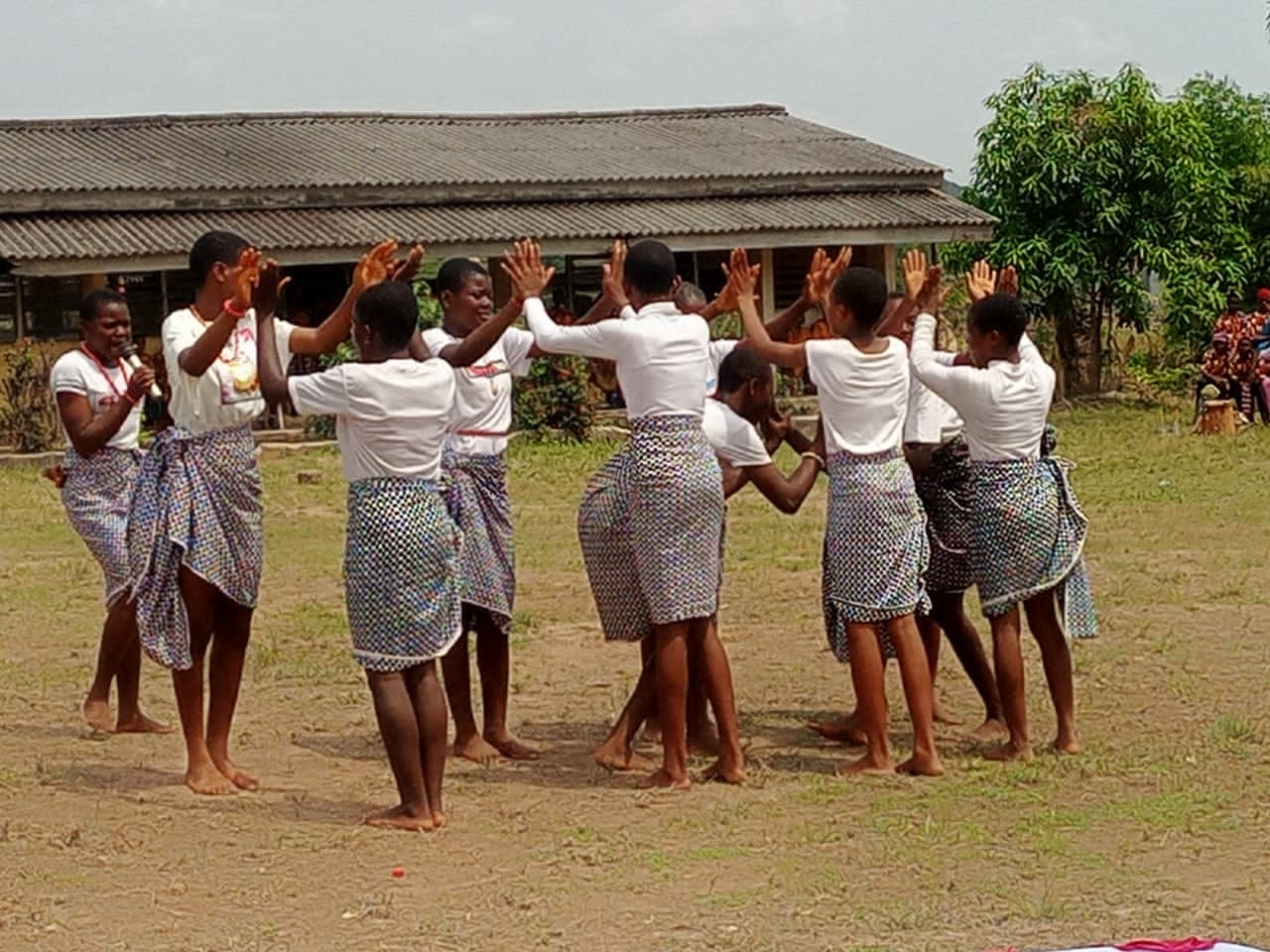By Ovat Abeng
About 654 Primary and Secondary Schools, have participated in the ongoing Igbo dance and drama competition in Anambra state.
Similarly, proprietors and stakeholders in the educational and entertainment sectors have been charged to encouraged the reading and studying of Igbo proverbs, norms and values among youths in order to protect the future of Igbo language and culture.
According to Ms Ify Nweri the founder and sponsor of the Maiden Edition of Ifemeluigbo Dance and Drama Competition took place at Enugwu Agidi Secondary School in Njikoka local government area of Anambra, the Maiden Edition is the flag off of the project which would be replicated in all the Primary and Secondary Schools in the council area.
She noted that early childhood development must include the teaching and encouraging of the children to take part in show casing the culture and traditions of their people in order to build self confidence among them.
Read Also: Soludo flags off distribution of instructional materials, buses for Anambra Basic Schools
“The aim of this program is to support our young people in showcasing their cultural creative arts talent and teach them how to develop a more profound appreciation for their cultural identity, as well as shaped their cultural values.”
“It will also help them in their physical, emotional, and cognitive development. Children who engaged in traditional dance and activities are likely to have better memory retention and cognitive flexibility. Our Igbo cultural play and dance often involve memorizing steps and patterns; this helps improve children’s memory and cognitive skills.”
“When we support our children in showcasing their creative skills, we give them the leeway to learn to express themselves creatively, which can help them build self-confidence and self-esteem. They also learn to work together in groups, cooperate with others, and communicate effectively.”
“During Igbo cultural play activities, children can build their self-confidence, express their identity, and surpass their usual abilities, tendencies that are not always achievable in non-play environments.”
“This is just a tip of the iceberg. This program will go round Anambra State, covering over 266 secondary schools and over 388 primary schools in Anambra State because people without knowledge of their history, origin, and culture are like trees without roots.”
“Play is therapeutic, particularly for children. Creative arts activities like cultural dance and drama are ways children can express themselves and heal from a traumatic incident or inner childhood trauma.”
Speaking earlier the Principal of Enugwu Agidi Secondary School Mrs Thecla Azubuike expressed optimism that the program would go a long way in discovering young talents among school children.
“What took place here is remarkable and also symbolic in view of the fact that some children who are gifted in entertainment would leverage of it to excell in life and I wish to urge my colleagues to key into this program because everyone would not be involved in white collar jobs.”
“Also our Town Union leaders and Traditional Rulers should also encourage such a program to save the culture and traditions of the Igbo people from going into extinction,” she said.
